The main website of The International Outsider is found now @ https://interouts.uk
Alternatively you can get access to all our articles on the South African Website of The International Outsider@ https://interouts.co.za
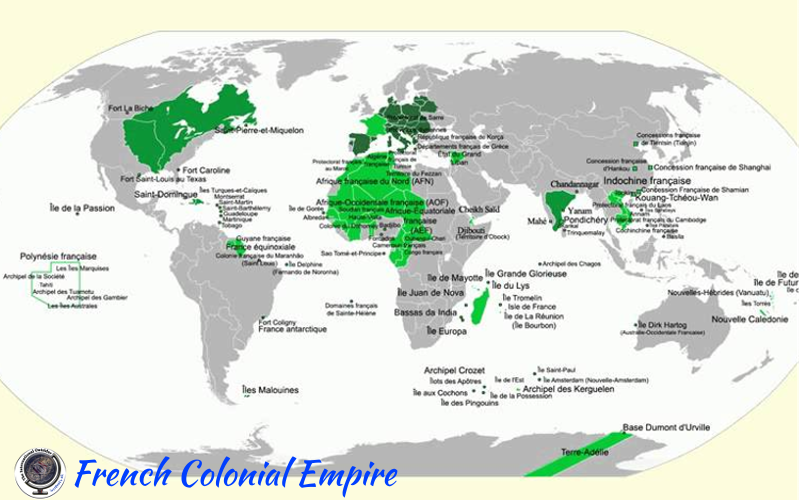 France’s colonisation of Africa started in the 17th Century with the main invasion occurring from 1830 on. France ‘owned’ Morocco, Algeria, Mauritania, Mali, Senegal, Guinea, Cote D’Ivoire, Burkina Faso, Togo, Benin, Niger, Chad, Cameroun, Central African Republic, Congo Brazzaville, Gabon, Equitorial Guinea, (DRC) Democratic Republic of Congo, Rwanda, Burundi, Seychelles, Comoros, Mayotte, Madagascar, Mauritius, Reunion, and Djibouti.
France’s colonisation of Africa started in the 17th Century with the main invasion occurring from 1830 on. France ‘owned’ Morocco, Algeria, Mauritania, Mali, Senegal, Guinea, Cote D’Ivoire, Burkina Faso, Togo, Benin, Niger, Chad, Cameroun, Central African Republic, Congo Brazzaville, Gabon, Equitorial Guinea, (DRC) Democratic Republic of Congo, Rwanda, Burundi, Seychelles, Comoros, Mayotte, Madagascar, Mauritius, Reunion, and Djibouti.
The French have extracted astonishing amounts from Africa over the centuries. At present, they hold 500 billion Euros of Gold supposedly for ‘safe-keeping’, which officially are the Reserves of African nations in the Francophone zone. Will they hand it over to the individual nations if asked directly by them to do so? Unlikely, again they have resisted all attempts by the dispossessed nations to recover their assets. Additionally, the francophone countries using the CFA Franc (French African Franc) pay an amount + or – 500 billion Dollars per annum to France for the ‘benefit’ of using a French imposed and controlled currency that has no backing and is a way of ensuring France receives a % of any transaction using the currency. They are Benin, Burkina Faso, Côte d'Ivoire, Guinea, Mali, Niger, Senegal, Togo, Cameroon, Central African Republic, Chad, Congo, Equatorial Guinea, and Gabon (20 Aug 2023). Why do the French get a percentage? No coherent answer is ever given other than the usual ‘we are doing it to benefit Africa’ ostensibly to assure economic stability. Really? I wonder if Africa’s people hold the same view as the enormous cost they were forced to pay both in terms of human suffering and material wealth gave them no benefit at all.
The figures available focus on looted art and cultural items rather than extracted materials and it is not apparent what the actual true value of even these looted cultural items is in today’s world. Some have been symbolically returned and the focus is diverted from the money produced by raw materials, precious metals and gemstones, human goods (slaves) and captive markets. Like all colonial powers, the French were in charge of not only who were allowed to supply them but what was available in terms of the goods and services sold to their ‘subjects’ in the countries they ruled. So French companies producing virtually anything from clothing, household items, foodstuffs to weaponry had readymade markets with only ‘local’ competition which was neither developed or allowed to develop in Africa, and the income generated by them naturally ended up back in France. A considerable amount of the business done by French manufacturers and food producers was due to having captive markets available to them so providing guaranteed demand for their goods and services. No reliable economic or financial data is available to quantify the amount gained by the French for this alone. The French have a history of extreme measures implemented by them to ensure the African nations use the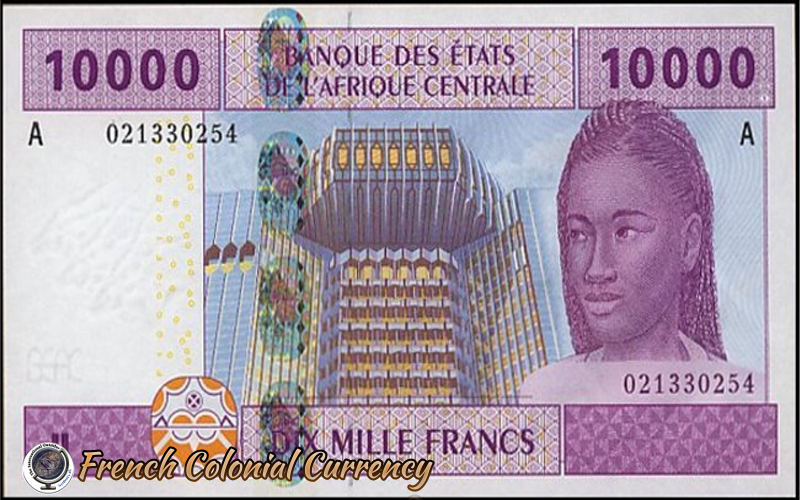 CFA Franc, a common currency they all use to purportedly provide security, stability and confidence. An example is Guinea and the economic and social turmoil suffered in 1958 which was deliberately formented by Charles de Gaulle as a result of its President, Seke Toure’s ensuring the nation voted no to implementing the CFA Franc As aa.com put it, France still has unfair economic relations with Africa requiring its ex-colonies to deposit 50% of Forex Reserves in the Treasury of France. Again why? The CFA Franc made headlines in March 2023 with translation into English of ‘Africa’s Last Colonial Currency, The CFA Franc Africa’s Last Colonial Currency: The CFA Franc Story by Fanny Pigeaud and Ndongo Sylla putting France’s on-going pillage of Africa in the spotlight. The continuing saga of France controlling Francophone Africa’s money supply is one of the reasons behind Niger, Mali, Burkina Faso, Algeria and other African nations (with the exception of Chad) forcing the French out of their countries and removing from power the Presidents and governments imposed on them. This is on-going with the regional differences being put to the side for the moment to allow them to focus on removing the malign French ‘influence’ which has forced them to live in poverty for far too long.
CFA Franc, a common currency they all use to purportedly provide security, stability and confidence. An example is Guinea and the economic and social turmoil suffered in 1958 which was deliberately formented by Charles de Gaulle as a result of its President, Seke Toure’s ensuring the nation voted no to implementing the CFA Franc As aa.com put it, France still has unfair economic relations with Africa requiring its ex-colonies to deposit 50% of Forex Reserves in the Treasury of France. Again why? The CFA Franc made headlines in March 2023 with translation into English of ‘Africa’s Last Colonial Currency, The CFA Franc Africa’s Last Colonial Currency: The CFA Franc Story by Fanny Pigeaud and Ndongo Sylla putting France’s on-going pillage of Africa in the spotlight. The continuing saga of France controlling Francophone Africa’s money supply is one of the reasons behind Niger, Mali, Burkina Faso, Algeria and other African nations (with the exception of Chad) forcing the French out of their countries and removing from power the Presidents and governments imposed on them. This is on-going with the regional differences being put to the side for the moment to allow them to focus on removing the malign French ‘influence’ which has forced them to live in poverty for far too long.
However when it comes to more basic matters like the supply of raw materials, foodstuffs and slaves, the French administration are very cagy about either releasing the figures or admitting to them in the first place. Apart from historical figures available from companies and businesses that kept records and that are public in the first instance, there is little to go on. An example of this lack of accounting is that after the reparations paid by France at the end of the Franco Prussian War of 1871 to Prussia (Germany), France was insolvent and devastatingly poor (rats were a staple in the diet) yet they managed to enter WW1 with the largest standing army in the world which was paid for by the wealth extracted from Africa. The fact that Mali for example has no strategic reserves of gold in its Treasury yet France has 2437 tons (source: World Gold Council) in its reserves with a large percentage of it being traceable back to Mali speaks volumes about the astronomical amounts the French looted. ( Taking 25% of the gold held by France coming from Mali ( 800 tons) alone, at a price of 1900 US Dollars per ounce = 53,6 Trillion US Dollars using an average value of 67 Million US Dollars per ton of gold as a bench mark value. The price of gold fluctuates daily so I used a median figure). Since France also earned on the back of the CFA Franc, the amount gained by France over the centuries of its enforced colonisation of African nations must be approaching at a minimum at least 70 to 100 Trillion US Dollars with the actual figure being considerably more. There will be the usual qualitative arguments against these figures but the question of how much has yet to be fully addressed, a matter the French Administration will not be overly helpful with. The question persists, why is none of the accounting that took place over the centuries not available, not just in France’s case but for all the colonial powers? Not all of it can have been lost, destroyed, nor publicly accessible unless it was never intended to be so.
‘France states that is has stopped colonisation, however a large percentage of their budgets (France still receives about 80% of its former colonies' annual income) goes to France’s Central Bank under various guises.20 Aug 2023’
Again, so much for the always superciliously arrogant French talking up their innovation, science, industry and ‘ethical’ culture ( not forgetting the ‘language’) as the reasons for their success with ‘naturellement’, good old fashioned hard work and determination. Like the British, a smokescreen of fantasy designed to sideline the truth that most of the gains of “Belle France” came on the back of theft, looting and the subjugation of humans through slavery whether physical or economic.
Portugal possessed Sao Tome and Principe, Cape Verde, Angola, Guinea-Bissau and Mozambique. In 1482, Portugal’s king, John II, built a factory in Elmina and established the Company of Guinea in Lisbon to manage the gold industry in Guinea, which was a royal monopoly. Though there are some records obtainable, much of the gold extracted is not accounted for nor the value of other wealth generated from the usual items like raw materials (diamonds), commodities and of course, humans.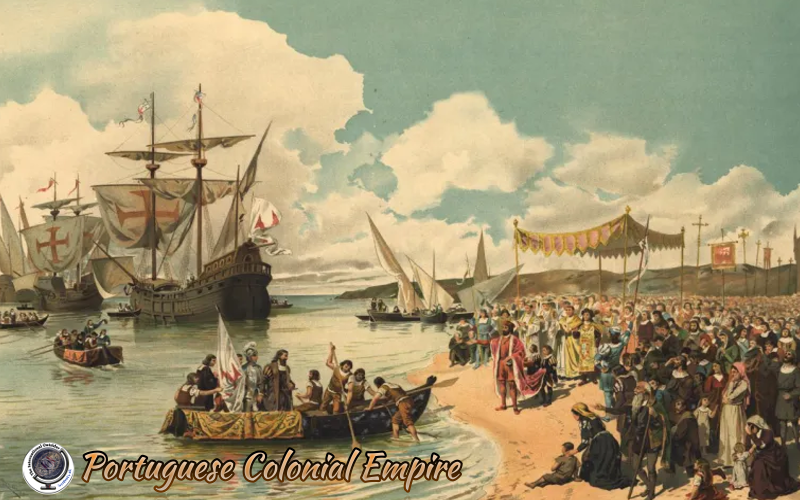 Over a period of 400+ years, Portugal enslaved 5.8 million Africans with the majority going to Brazil which it lost control of in 1822. Thus, the immense wealth extracted from Brazil was in the main, due to the use of slave labour brought from Africa. From the mid-15th Century until the revolution in 1974, Portugal’s economy depended to a large degree on trade and raw materials from its vast colonial possessions in Africa as well as diamonds, gold, oil including Palm Oil, timber and of course, slaves, who were the labour to produce all of this.
In an article from 1974,the New York Times used a statistic from the Bank of Portugal to ascertain that 100 million US Dollars had flowed from Africa to Portugal in the previous 2 years yet no figures or data is forthcoming about the previous centuries or since then. These profits are derived from agriculture, industry, transport, banking and commerce and insurance. Again, very little factual data to draw upon is available other than the usual symbolic return of looted art and artefacts with a distinct lack of reference to commodities, raw materials, foodstuffs and of course, slaves and centuries of profit from the colonies. The issue of the wealth derived from slavery is more complex as most of the slaves were sent to Brazil though Africa used them abundantly in all means of production from mining, agriculture and industry. However Africa proved its worth and estimates vary but starting from 1500, Portugal gained an amount not less than 1 to 2 Trillion US Dollars with other estimates quadrupling that. Obtaining figures for the value or amount of gold taken from Guinea from the 1480’s is quasi non-existant so any figures are guesses at best but given the effort extended by the Portuguese to extract and control the gold, the sums are vast.
Over a period of 400+ years, Portugal enslaved 5.8 million Africans with the majority going to Brazil which it lost control of in 1822. Thus, the immense wealth extracted from Brazil was in the main, due to the use of slave labour brought from Africa. From the mid-15th Century until the revolution in 1974, Portugal’s economy depended to a large degree on trade and raw materials from its vast colonial possessions in Africa as well as diamonds, gold, oil including Palm Oil, timber and of course, slaves, who were the labour to produce all of this.
In an article from 1974,the New York Times used a statistic from the Bank of Portugal to ascertain that 100 million US Dollars had flowed from Africa to Portugal in the previous 2 years yet no figures or data is forthcoming about the previous centuries or since then. These profits are derived from agriculture, industry, transport, banking and commerce and insurance. Again, very little factual data to draw upon is available other than the usual symbolic return of looted art and artefacts with a distinct lack of reference to commodities, raw materials, foodstuffs and of course, slaves and centuries of profit from the colonies. The issue of the wealth derived from slavery is more complex as most of the slaves were sent to Brazil though Africa used them abundantly in all means of production from mining, agriculture and industry. However Africa proved its worth and estimates vary but starting from 1500, Portugal gained an amount not less than 1 to 2 Trillion US Dollars with other estimates quadrupling that. Obtaining figures for the value or amount of gold taken from Guinea from the 1480’s is quasi non-existant so any figures are guesses at best but given the effort extended by the Portuguese to extract and control the gold, the sums are vast.
What is now known as The Democratic Republic of Congo is considered one of the world's richest countries in terms of wealth in natural resources. Most of the raw mineral deposits remain untapped and are worth an estimated $24 trillion. These deposits include the world's largest coltan reserves and considerable amounts of cobalt, copper, diamonds and gold as well as lithium and tantalum.
The Belgian state officially spent 40 million Gold francs and received only 66 million as return from the time King Leopold took control of the Congo until 1908 when he was ‘paid’to let go of his prize colony (A Belgian Gold France = 390 + or – US Dollars today). His actions led to a situation whereby the European and American powers forced him to relinquish control. At no point in all of this did the people of the Congo play any part nor were they even informed until well after the event of the outcome. He was estimated to have profited by more than 1 Billion US Dollars which is an ignoble sum for the insane decimation that occurred during his rule which resulted in the death of half the population in just 20 years (not quite full blown genocide but a good measure nonetheless). In a publication entitled ‘The Congo and the Belgian Economy’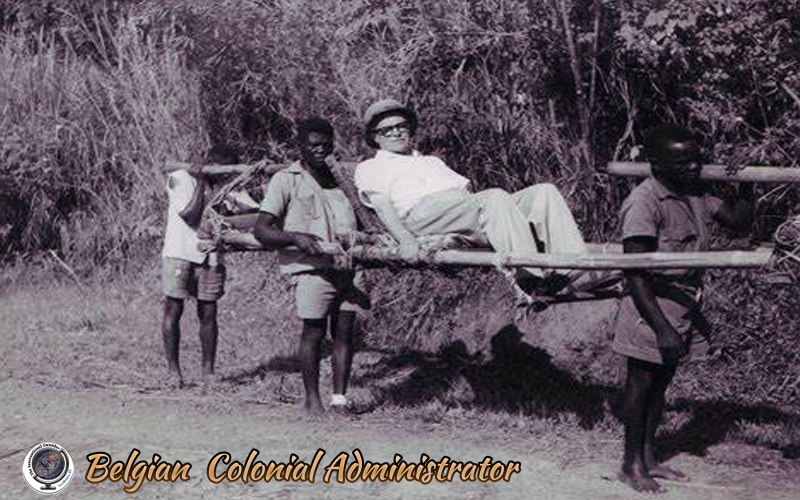 the carefully phrased question was introduced ‘but was colonisation economically beneficial to the coloniser?’ Is this to exculpate the coloniser from responsibility? It must be understood that for western colonisers, they were just ‘doing a favour’ colonising these nations and civilising them because they all lost money doing so. This attitude of the Western Colonial Powers is endemic among them, even in today’s supposedly inclusive and politically correct times. Thus obtaining reliable records and quantifiable figures is an uphill battle with only snippets available apart from the ‘official’ version, which is invariably extremely far from the truth. So what figure can one ascribe to Belgium’s take from Africa? If we accept Leopold’s profit as 1 Billion US Dollars, then the minimum that Belgium received (traders, manufacturers, services) should be in the order of around 2 to 4 times that since in order to rule and remove the wealth from Africa, one has to maintain a supply line in both directions with all the logistics catered for (This is arbitrary but gives an indication of the level of unknown wealth entering Belgium from Africa). Accounts are always kept by rulers and governments but where are they? The usual reasons (excuses) given that they are destroyed over time or lost do not hold water.
the carefully phrased question was introduced ‘but was colonisation economically beneficial to the coloniser?’ Is this to exculpate the coloniser from responsibility? It must be understood that for western colonisers, they were just ‘doing a favour’ colonising these nations and civilising them because they all lost money doing so. This attitude of the Western Colonial Powers is endemic among them, even in today’s supposedly inclusive and politically correct times. Thus obtaining reliable records and quantifiable figures is an uphill battle with only snippets available apart from the ‘official’ version, which is invariably extremely far from the truth. So what figure can one ascribe to Belgium’s take from Africa? If we accept Leopold’s profit as 1 Billion US Dollars, then the minimum that Belgium received (traders, manufacturers, services) should be in the order of around 2 to 4 times that since in order to rule and remove the wealth from Africa, one has to maintain a supply line in both directions with all the logistics catered for (This is arbitrary but gives an indication of the level of unknown wealth entering Belgium from Africa). Accounts are always kept by rulers and governments but where are they? The usual reasons (excuses) given that they are destroyed over time or lost do not hold water.
Spain’s colonization was centered on South America but to make it profitable, ( apart from the gold, silver etc. they stole and mined) it was necessary to use slave labour which was brought from Africa with most of that coming from the Western mainland. Spain had been very active since around 1470 in the slave trade and turned their attention to Africa directly in the 15th Century. It is believed that around 1,500,000 enslaved Africans arrived in the Spanish Americas from Africa between 1520 and 1867 and a further 500 Thousand + came from other colonies. To facilitate this, Spain seized Fernando Po from Portugal in 1778 because of its strategic placement in the maritime traffic of slaves from West Africa.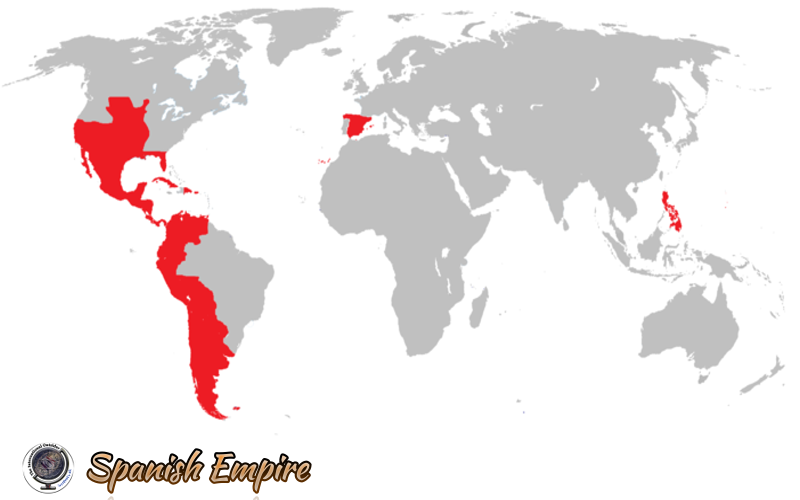 What is referred to as Spanish North Africa comprises Alhucemas, the Chafarinas Islands, Peñón de Vélez de la Gomera and Ceuta and Melilla which are sited on Morocco's Mediterranean coast and were colonized in the 15th Century. Spain colonized North Morocco, Ifni, the Tarfaya region, Western Sahara, and the territories of early-21st-century Equatorial Guinea in the 19th Century. Given that the areas are not mineral rich or brimming with natural resources being mainly desert, Spain has not invested heavily in them as the infrastructure needed is prohibitively costly. However, there are the slaves to consider and quantifying the value added to Spain’s wealth is very difficult as the figures concentrate on gold and silver mainly coming from South America and not on the labour of slaves to produce goods or supply services. If taking just one often quoted figure regarding wealth taken by Spain from South America over a period of 150 years (1500-1656) as 180 tons of Gold = 12 Trillion US Dollars and 16 thousand tons of Silver = 11,6 Trillion US Dollars (Current price per ton is 727,892.90), then the question of the contribution of the slaves from Africa to the riches extracted from South America should be considered and evaluated. Regarding the return on Spain’s expenditure on its colonies in Africa, it appears to be officially not a profitable one for Spain putting aside slavery. The GDP of Ceuta as an example is just 2 + Million Euros and the other colonies are similar. However, Spain has geo-political reasons to maintain these colonies other than immediate profitability.
What is referred to as Spanish North Africa comprises Alhucemas, the Chafarinas Islands, Peñón de Vélez de la Gomera and Ceuta and Melilla which are sited on Morocco's Mediterranean coast and were colonized in the 15th Century. Spain colonized North Morocco, Ifni, the Tarfaya region, Western Sahara, and the territories of early-21st-century Equatorial Guinea in the 19th Century. Given that the areas are not mineral rich or brimming with natural resources being mainly desert, Spain has not invested heavily in them as the infrastructure needed is prohibitively costly. However, there are the slaves to consider and quantifying the value added to Spain’s wealth is very difficult as the figures concentrate on gold and silver mainly coming from South America and not on the labour of slaves to produce goods or supply services. If taking just one often quoted figure regarding wealth taken by Spain from South America over a period of 150 years (1500-1656) as 180 tons of Gold = 12 Trillion US Dollars and 16 thousand tons of Silver = 11,6 Trillion US Dollars (Current price per ton is 727,892.90), then the question of the contribution of the slaves from Africa to the riches extracted from South America should be considered and evaluated. Regarding the return on Spain’s expenditure on its colonies in Africa, it appears to be officially not a profitable one for Spain putting aside slavery. The GDP of Ceuta as an example is just 2 + Million Euros and the other colonies are similar. However, Spain has geo-political reasons to maintain these colonies other than immediate profitability.
Italy owned Ethiopia and three ex-Italian Colonies-Eritrea and Italian Somaliland in East Africa, and Libya in North Africa (the last three were officially called "Africa Orientale Italiana"). Italy's first colonial occupation was in 1885 in Massawa in what is now Eritrea. The Italians were not able to maintain their colonies for very long and it was noted that the colonists that came from Italy were not wealthy and lived fairly poorly in the colonies without great hope of future economic improvement as the colony expanded. The amount taken by Italy from its African colonies cannot be substantiated as there is little or none to account. Oil is always quoted but that comes into play for a short time period as colonisation lasted from 1890 to 1941 and it was not in large enough quantities to prevent supply limitations and have a substantial economic impact. Italy needed raw materials for both power and their industrial base but also land for colonists following the Great Depression of the 1930’s as being already a poor nation; they could not offer any other solution for the public to escape grinding poverty that afflicted not only Italy, but all of Europe. There are few considered figures available for the amount profited by Italy colonising parts of Africa and the wealth that flowed back ‘home’. However, colonies cost the coloniser to run so if they are unproductive, then they are abandoned. Italy paid a War Reparation to Ethiopia of 25 Million Dollars and there is much talk about the return of looted art and cultural artefacts as The African Courier article makes clear However, restitution, the term applied to the return of the artistic/cultural items fails to address the issue of slavery, mineral extraction and all the profit driven business that extracted money for Italian nationals and companies and ultimately, the government. It simply follows colonial policies that the western colonial powers agreed upon and stuck to.
Has Italy gained economically from having colonies in Africa? To this question I am forced to follow the herd to an extent, yes to prestige (limited) and pride (for a moment), no or at least very little regarding profit taken out of Africa though without doubt, some must have flowed.
The Dutch started to colonize parts of the African Continent from the 17th Century. This included what is now known as the Ivory Coast, Ghana, South Africa, Angola, Namibia and Senegal. Their colonies were noted for treating enslaved men, women and children as barely human. Cape Town in South Africa was their main hub for the slave trade (it is estimated authoritatively that 65% of Cape Town’s population were slaves in 1795).The colonies that became Ghana were called the Dutch Gold Coast due to the enormous amounts of gold that they extracted. Further immense profits came from minerals, timber, foodstuffs and piracy since the Dutch were the maritime global leaders in the transport of goods from around the world to Europe and back (they included piracy, common to the English, Dutch and Spanish Crowns of Europe who justified it as those being looted were ‘the enemy’). However, the slave trade alone brought immense profits to The Netherlands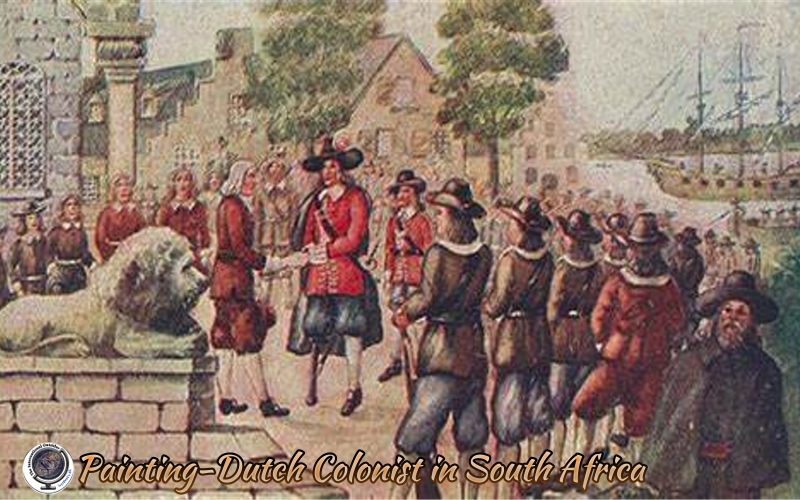 which have been recently quantified to an ‘official’ extent. According to a study ( the first) published recently, the House of Orange-Nassau—the royal house of the Netherlands—made around $600 million in today's money from slavery in the Dutch colonies between 1675 and 1770, (not including shares in the Dutch East India Company that were ‘gifted’ to the Crown) reports the Observer's Donna Ferguson on the 5th of July, 2023. It must be noted that if only half of that were invested, even with compound interest, the sum today is staggering. The study is the first to quantify numerically the colonial slave trade by Holland and quotes a figure of 600 Thousand African slaves. Slavery always included women and children alongside the men. Though these ‘authoritative’ studies give figures, the true ones are not available and the sources referenced are not corroborated by other independent ones. In 1770 approximately 10.36 % of the GDP of Holland came from slave based activities. Dutch historians, like those in all the other ex-colonial powers involved in slavery, describe the contribution of slavery to the Dutch economy as minimal and quote selective periods of time and figures. However, a five-year study conducted by historians at the International Institute of Social History in Amsterdam, the Vrije Universiteit of Amsterdam and Leiden University undermines this completely and shows the true impact of slavery on the economy and wealth of the Dutch. Slave based commodity flows were vital for the rapid growth of the Dutch economy, also applicable to the British and French economies coming to fruition in the 18th Century, when Europe as a whole grew at a very rapid rate economically and became the powerhouse of the world. Again, slavery is referred to and ‘figures’ given (for selected periods) but the rest of what the colonies in Africa supplied was seldom quoted with any semblance of accurate figures which could be cross referenced and specific time dated.
which have been recently quantified to an ‘official’ extent. According to a study ( the first) published recently, the House of Orange-Nassau—the royal house of the Netherlands—made around $600 million in today's money from slavery in the Dutch colonies between 1675 and 1770, (not including shares in the Dutch East India Company that were ‘gifted’ to the Crown) reports the Observer's Donna Ferguson on the 5th of July, 2023. It must be noted that if only half of that were invested, even with compound interest, the sum today is staggering. The study is the first to quantify numerically the colonial slave trade by Holland and quotes a figure of 600 Thousand African slaves. Slavery always included women and children alongside the men. Though these ‘authoritative’ studies give figures, the true ones are not available and the sources referenced are not corroborated by other independent ones. In 1770 approximately 10.36 % of the GDP of Holland came from slave based activities. Dutch historians, like those in all the other ex-colonial powers involved in slavery, describe the contribution of slavery to the Dutch economy as minimal and quote selective periods of time and figures. However, a five-year study conducted by historians at the International Institute of Social History in Amsterdam, the Vrije Universiteit of Amsterdam and Leiden University undermines this completely and shows the true impact of slavery on the economy and wealth of the Dutch. Slave based commodity flows were vital for the rapid growth of the Dutch economy, also applicable to the British and French economies coming to fruition in the 18th Century, when Europe as a whole grew at a very rapid rate economically and became the powerhouse of the world. Again, slavery is referred to and ‘figures’ given (for selected periods) but the rest of what the colonies in Africa supplied was seldom quoted with any semblance of accurate figures which could be cross referenced and specific time dated.
The official figures for Holland’s GDP in 1770 are 15 Million Guilders so 10% = 1.5 Million Guilders. In an authoritative article by Vanosnabrugge, they calculated that 100 Guilders in 1770 = 6,000 US Dollars in today’s money so the value of slave based activities for that year was 9 Million US Dollars. Taking only this figure from 1 year in the 17th Century and the centuries that followed not forgetting the prior years, there is no doubt that Holland received an enormous input from African colonies into its economic growth and that this over the next centuries facilitated its becoming a major player in Europe (its current GDP is 1+ Trillion US Dollars per year). However, the Gold from Ghana is not accounted for nor the other commodities produced by the slave based labour so any coherent quantifying of the actual amount is hard to obtain. The slavery continued until abolition with no figures available for this period though the industrialisation of Europe increased demand for Dutch products and services immensely which increased demand for the labour provided by slaves and captive markets for the provision of goods and services in the colonies.
The six colonies of German Africa were Burundi, Cameroon, Namibia, Rwanda, Tanzania and Togo. German South West Africa was a colony of the German Empire from 1884 until 1915. In 1871 German unification took place and the society quickly industrialised which raised the need for a continuous supply of raw materials (especially cotton) to feed the growth and, seldom mentioned, a captive market for what was now mass produced. This turned out to be a problem rapidly overcome by the simple expedient of colonising parts of Africa with abundant resources and unlimited cheap labour as well as the usual captive market for the goods produced by the industrial bounty. The treatment of cotton workers was in many cases inhumane as they were tortured by the German colonist authorities into becoming labour for growing cotton as well as other labour intensive processes leading to Wikipedia saying ‘increased German brutality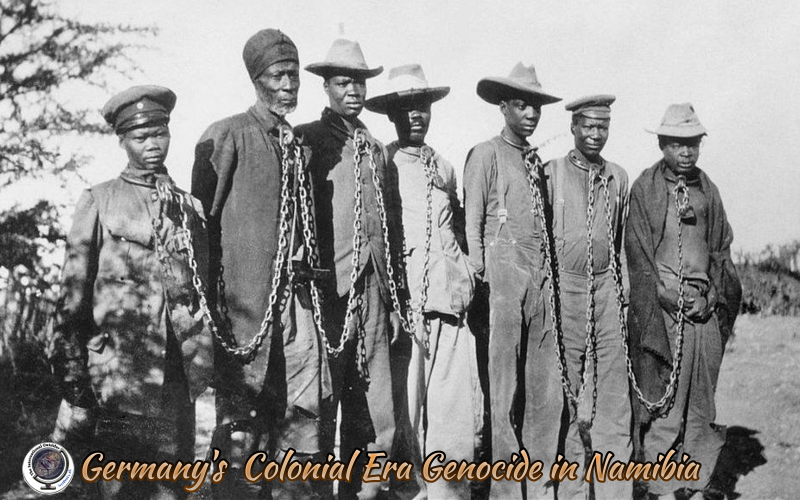 in East Africa, as Europeans would be willing to torture and kill to ensure their supply of raw materials’. Though in comparison to the centuries of British, French, Dutch and Portuguese colonisation, the German colonies were short lived, they still proceeded to inject a substantial amount of capital into the economy of 19th Century Germany definitely raising its status as a ‘world’power. Again like other colonial powers, much emphasis has been placed on the looted art and cultural items with little on the economic input of the raw materials and cheap labour or the produced goods and services rendered. In June 2022, Germany agreed to return 1000 Benin Bronzes along with other ‘artefacts’ to African nations that had been stolen was reported by NPR.Org However, according to the official version, in Germany’s case, it is the western nation that did not benefit economically from having colonies in Africa but actually ran them at a loss. Very altruistic of them. This belies their aims of feeding their growing industrialised economy and population, something that tangibly took place but seemingly did not produce any records reflecting this.
in East Africa, as Europeans would be willing to torture and kill to ensure their supply of raw materials’. Though in comparison to the centuries of British, French, Dutch and Portuguese colonisation, the German colonies were short lived, they still proceeded to inject a substantial amount of capital into the economy of 19th Century Germany definitely raising its status as a ‘world’power. Again like other colonial powers, much emphasis has been placed on the looted art and cultural items with little on the economic input of the raw materials and cheap labour or the produced goods and services rendered. In June 2022, Germany agreed to return 1000 Benin Bronzes along with other ‘artefacts’ to African nations that had been stolen was reported by NPR.Org However, according to the official version, in Germany’s case, it is the western nation that did not benefit economically from having colonies in Africa but actually ran them at a loss. Very altruistic of them. This belies their aims of feeding their growing industrialised economy and population, something that tangibly took place but seemingly did not produce any records reflecting this.
Obtaining any sort of verifiable accounting of the wealth Germany extracted from Africa is difficult and obtuse with the venerable Wikipedia saying ‘Settlements in Cameroon, Namibia, Burundi, Rwanda, Tanzania and Togo quickly grew into lucrative colonies’ which belies the official narrative and underlines the very reason they needed colonies, for raw materials and cheap labour.
All of this economic ‘factual’ information is but the tip of the iceberg even given that a lot of the wealth gained by colonisation has throughout history been squandered (self-aggrandizing projects, fruitless conquests and sheer indolence) and the value of the rest invested and grown over centuries whether in bricks and mortar, land, valuables or production is quite astounding even if only the available ‘recognised’ data is extrapolated. The most conservative estimates are forced to come to an undeniable conclusion, though the degree differs and accounts for many academic, expert or fundi ‘polite’ disagreements (after all, tenure and book sales are at stake). The conclusion they reach, often to great dismay is that the carefully constructed air of ‘western supremacy’ in all matters is based on looted wealth injected into their societies to enable the astounding growth in all aspects of life and the ensuing false concept inculcated over centuries of a superior civilization. Yes the undeniable advances made in technology, science, means of production, financial systems and social advances (quality of life, medical etc.) drove the process forward but the underpinning was the continuous income stream generated by the colonisation of Africa and the implementation of slavery which accounted for a very large proportion of the income derived from the global colonisation by the western nations. The true figure will most possibly never be known as not only would it be geo-political dynamite but suicidal in the western colonial powers unending quest to obtain Africa’s riches at minimal cost using the same old methods they have employed for centuries.
Are there colonies still in existence under the control of western nations today? Among the countries that still have colonies; the United Kingdom has the most colonies. The eight colonial powers still maintain and control 61 colonies (or territories as they are referred to) globally. So we can truthfully say, colonialism masquerading as ‘modern ethical business’ is alive and well today.
What is not written does not exist.
© The International OutsiderC0.Reg.No SC715702 . All Rights Reserved. Design by HTML Codex